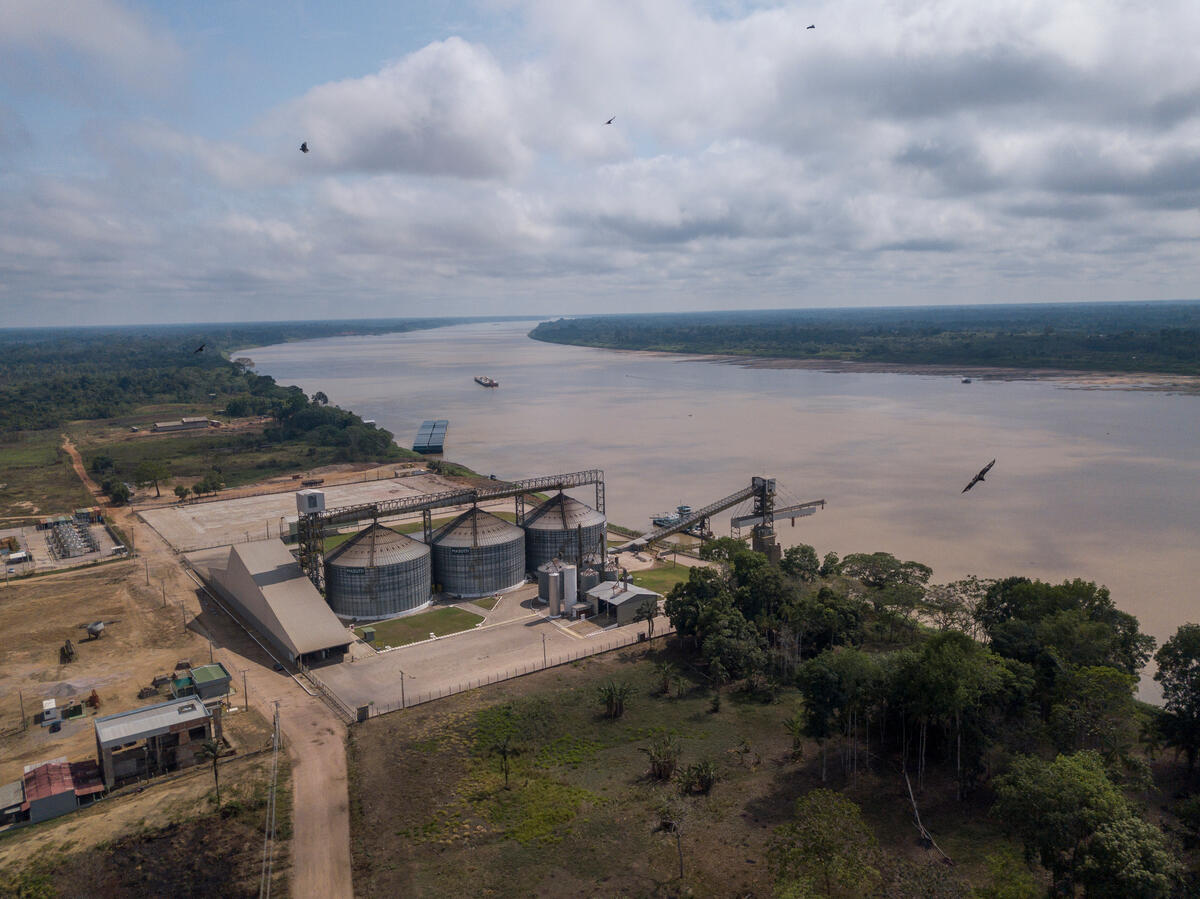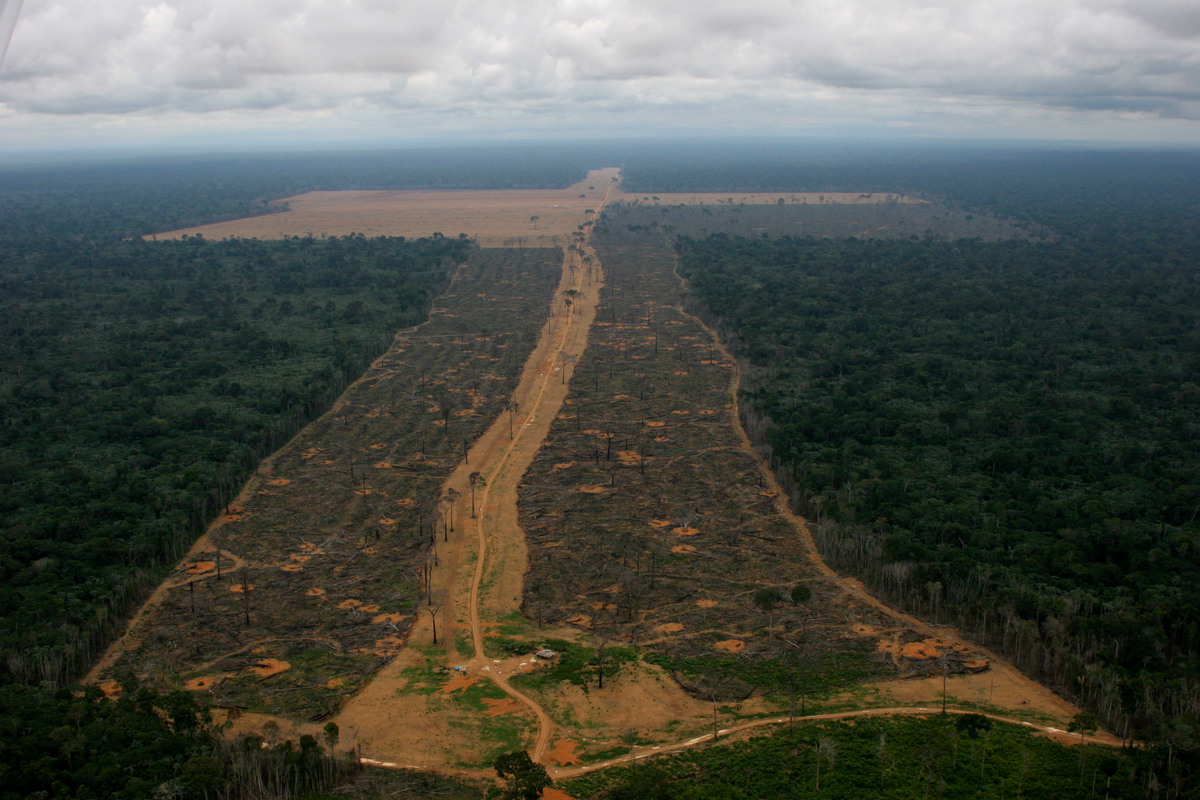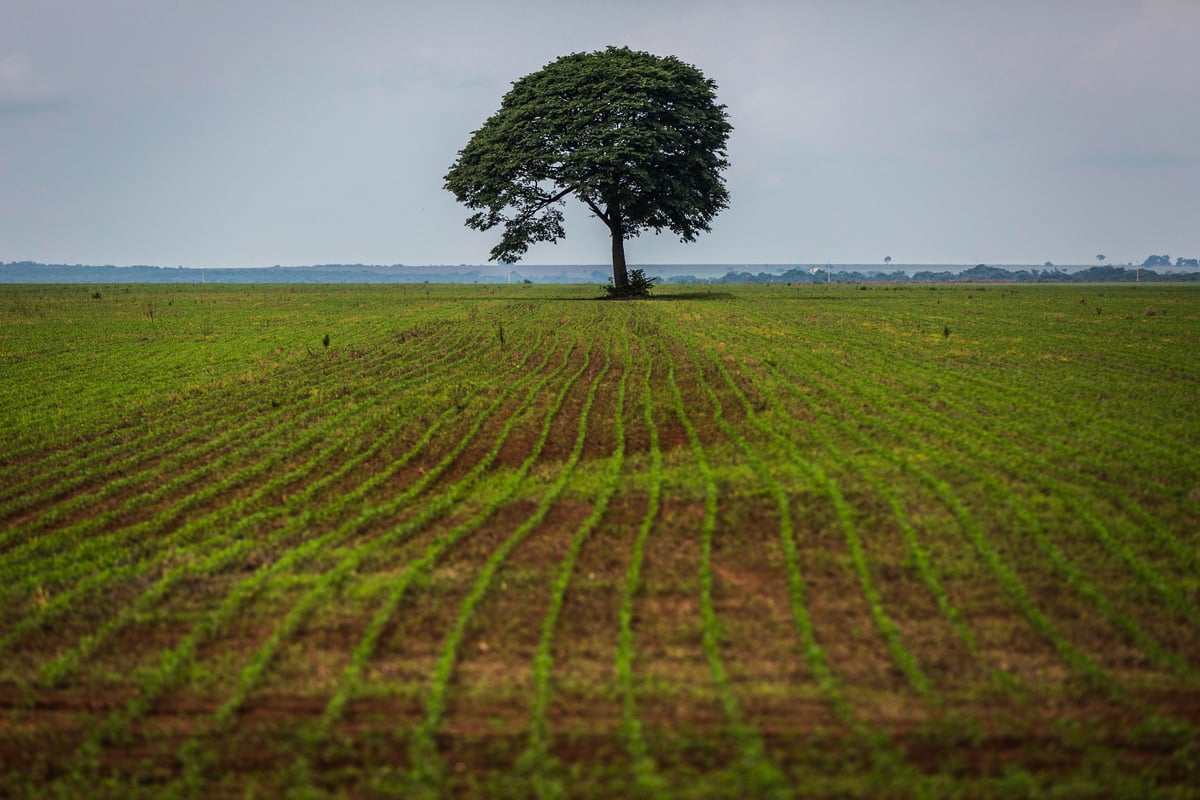This blog was originally published by Greenpeace Brazil
Market agreement that helped reduce deforestation in the Amazon has been subject to coordinated attacks in Brazil, with legislative proposals to harm those who act for nature.
We are experiencing a climate crisis that is already affecting lives around the world, while the loss of biodiversity continues at such an accelerated pace that scientists are already talking about a 6th mass extinction. In such a brutal scenario, one might hope that all political, economic and social sectors would be focused on taking action to stop the end of the world as we know it. But that’s not what’s going on in the minds of Brazilian ruralists, who launched voracious attacks to implode the most successful market agreement to prevent deforestation in the production chain, the Amazon Soy Moratorium. Undermining this could put Brazil, and the entire world, on the path to a tipping point.
The most backward sector of Brazilian agribusiness is advocating for the end of the Moratorium, arguing that anyone who does more than required by the Brazil’s Forest Code to protect the environment should be economically harmed, no longer receiving tax incentives aimed at the sector. In practice, this means rewarding those who destroy the Amazon. It is the biggest attack on the agreement in its 18 years of existence.
Movements in Brazil’s Chamber of Deputies and state legislative assemblies have been promoting bills to penalize producers who participate in the moratorium. The states of Mato Grosso and Rondônia have already approved laws in this regard and there are similar projects in other states, as well as a Bill in the National Congress.
“The approval of these bills by the state legislative and executive assemblies, with the aim of deconstructing this fundamental instrument for reducing deforestation, is a clear lack of commitment to the climate crisis”, says Alice Thuault, Executive Director of the Instituto Centro de Life (ICV).
To denounce this serious attack on the agreement and on nature itself, so far more than 70 civil society organisations, including Greenpeace Brazil, have signed the Manifesto in Defence of the Moratorium, as its end represents a serious threat to Brazil’s climate goals and biodiversity. It is a green light to destroy the forest, with the reestablishment of the incentive for deforestation. The accelerated deforestation of the Brazilian Cerrado and the South American Gran Chaco shows how biomes not covered by the agreement can be devastated by the rapid expansion of soybean plantations.

“Such initiatives aim to remove tax incentives for companies that adopt purchasing criteria additional to the Forest Code, aligned with market requirements. This means penalizing companies committed to ending deforestation, promoting the continued expansion of agribusiness in Amazon forest areas, creating subsidies for deforestation, and discriminating against the granting of tax incentives based on companies’ environmental commitment. Therefore, those who are more ambitious in environmental protection lose their incentive”, details the Manifesto.
Furthermore, the soybean market itself will be harmed, as this increases the reputational risks for companies, which will have less evidence and robustness to defend themselves against accusations of purchasing recently deforested areas, and for Brazilian agricultural production as a whole.
“Not long ago our environmental concern here in Acre was with deforestation to transform the forest into cattle pasture, but in recent years soybeans have been dominating the landscape. This cannot continue to happen, the public authorities cannot combat these problems in a structural way and the only instrument we have to deal with this situation with care and attention is the Soy Moratorium, but the forces of agribusiness are in an effort to destroy this mechanism and we absolutely cannot allow this to happen, then the end of the Amazon will be declared once and for all”, says Angela Mendes, Executive President of the Chico Mendes Committee.
READ FULL MANIFESTO IN PORTUGUESE or ENGLISH
“There is strong pressure coming from the most backward wings of agribusiness to eliminate any and all restrictions on predatory agriculture in the Amazon. The Soy Moratorium is the hot topic and the attack will not cease. We demand that participating companies not bow to these pressures and throw away 18 years of results from the Moratorium that they helped to build”, argues Cristiane Mazzetti, Greenpeace Brazil Forests campaign coordinator.
Soy Moratorium: 18 years of success in curbing deforestation in the Amazon
Between 2004 and 2005, the situation in the Brazilian Amazon was alarming, with the second highest annual deforestation rate ever recorded. Although the main enemy of the forest was livestock farming – which continues to be a threat – the opening of a new frontier for soybeans in places like Santarém and Belterra, far from the traditional “arc of deforestation” that devastated Brazilian states Rondônia, Mato Grosso and regions of south and east of Pará, the red light had turned on. It needed to be contained before it was too late.
In April 2006, Greenpeace released the report “Eating up the Amazon”, which showed how much the Amazon soy chain was contaminated by deforestation. After many rounds of negotiations, the Soy Moratorium was born, the result of a successful campaign and pressure exerted by consumers around the world.
What was seen as an “affront” to the market ended up becoming a great commercial asset over the years. After all, producing deforestation-free soy opened the doors to more markets for the Brazilian product in times of growing awareness on the origin of the product, sustainable consumption and climate emergency.

While the municipalities monitored by Moratorium resulted in a 69% reduction in deforestation (between 2009 and 2022), the area planted with soybeans in the Amazon biome grew 344%.
Of this growth, 95.6% occurred in areas already deforested and opened for destruction before 2008, mainly for pastures. During this same period, Brazil became the largest soybean producer in the world, being responsible for more than a third of the grain produced globally. Clearly, it is possible to expand production, making better use of arable land, without having to grab land, deforest, burn and destroy biodiversity.
For Mauricio Voivodic, executive director of WWF-Brazil, the Soy Moratorium has proven to be a very successful initiative, as it did not prevent the expansion of soy in the biome, but rather the deforestation caused by its expansion, consolidating itself as a fundamental tool to combat climate change.
“The preservation of the Amazon should be at the top of the priorities of rural producers, who are already feeling the effects of climate change and the change in rainfall that deforestation in the biome is already causing. Science has already proven the importance of the Amazon for the world climate and for the rainfall patterns in central-southern South America, on which the electrical and water security of the millions of people living in the region depend. In this sense, although signed almost two decades ago, it is a multisectoral agreement in line with global climate, biodiversity and even trade agreements, such as the recent pact between the European Union and Mercosur, which provides for environmental safeguards”, says Voivodic.
For all these reasons, the signatories of the Manifesto in Defence of the Moratorium defend strong actions by the public and private sectors that lead to the rapid and necessary reduction in deforestation. The signatories demand that companies linked to the soy chain maintain their commitment to zero deforestation and participate in the Soy Moratorium.
Any attempt to make the Amazon Soy Moratorium more flexible to comply with these new laws and the desire for destruction and profit by Brazilian ruralists represents an unacceptable setback, significantly limiting the ability to avoid the commercialization of products associated with the destruction of the Amazon. It is essential that this mechanism, which has already demonstrated important environmental results, continues to do its work.
Rosana Villar is the Greenpeace Brazil journalist.
Source link
Rosana Villar www.greenpeace.org



